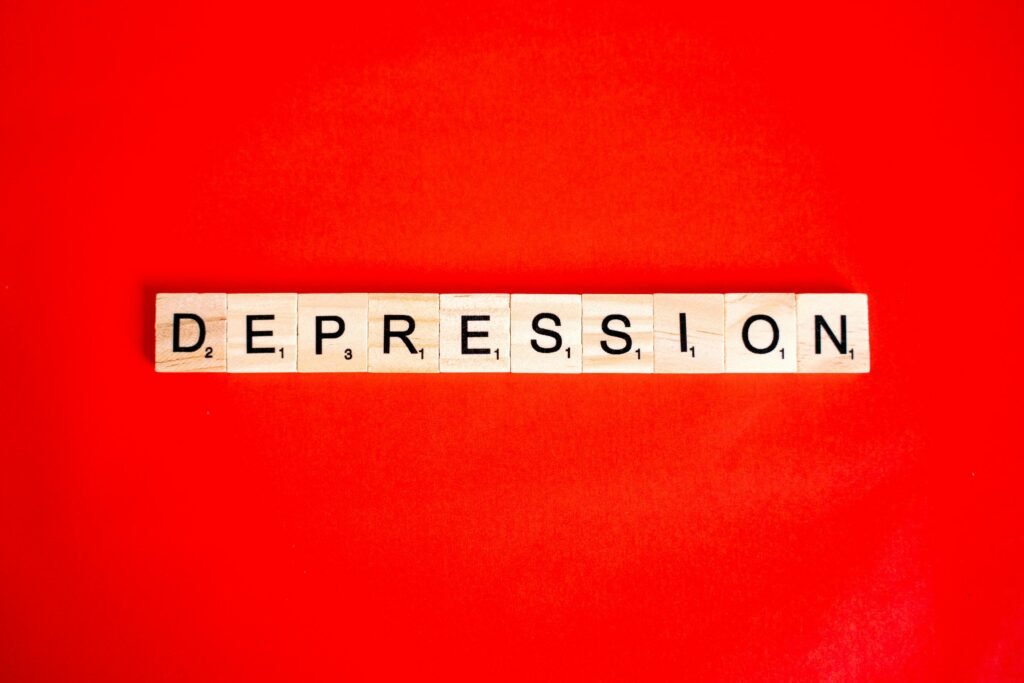
Introduction
The fluorescent lights buzz overhead as you finish another night shift, but instead of feeling accomplished, you feel empty. The world outside is waking up while you are winding down, and somehow this routine has begun to feel like you are living in a different universe from everyone else. If you have been working night shifts and noticed persistent feelings of sadness, hopelessness, or disconnection from life, you may be experiencing night shift depression.
Night shift depression is not just feeling tired or having a bad day after work. It is a genuine mental health condition that affects thousands of shift workers worldwide, yet it often goes unrecognized and untreated. The isolation of working while others sleep, the disruption of natural body rhythms, and the challenge of maintaining relationships and social connections can create a perfect storm for depression to develop.
Understanding night shift depression is the first step toward addressing it. This condition stems from complex interactions between your biological clock, social environment, and the unique stressors of shift work. The good news is that with proper recognition and targeted self-care strategies, you can take meaningful steps to improve your mental health and find ways to thrive even while working unconventional hours.
Understanding the Connection Between Night Shifts and Depression

Working night shifts creates several biological and social conditions that significantly increase your risk of developing depression. Your circadian rhythm, the internal clock that regulates mood-related hormones, becomes disrupted when you work against your natural sleep-wake cycle. This disruption affects the production of serotonin, dopamine, and other neurotransmitters that play crucial roles in maintaining emotional balance and mental wellbeing.
Exposure to artificial light during nighttime hours suppresses melatonin production, but melatonin does more than just regulate sleep. It also helps stabilize your mood and protect against depression. When melatonin levels remain chronically low due to night shift work, you may experience mood changes that go beyond simple tiredness or irritability.
The social isolation that often accompanies night shift work compounds these biological factors. While the rest of the world operates on a daytime schedule, you may find yourself sleeping when friends and family are available to socialize, and awake when they are sleeping. This misalignment can lead to feelings of loneliness and disconnection from your support network, which are significant risk factors for depression.
Research has shown that night shift workers are approximately 40 percent more likely to develop depression compared to day workers. This increased risk is not simply due to job stress or working conditions, but appears to be directly related to the circadian disruption and social challenges inherent in shift work itself.
Your body also experiences increased stress hormone production when working night shifts. Cortisol levels, which normally follow a predictable daily pattern, can become elevated and irregular. Chronic elevation of stress hormones has been linked to depression, anxiety, and other mental health issues. This physiological stress occurs even when you do not feel particularly stressed about your work, making it a hidden contributor to mood problems.
Recognizing the Signs of Night Shift Depression

Night shift depression can be tricky to identify because many of its symptoms overlap with the normal challenges of shift work. However, understanding the difference between temporary adjustment difficulties and genuine depression is crucial for getting appropriate help and support.
Depression symptoms in night shift workers often include persistent feelings of sadness, emptiness, or hopelessness that last for weeks or months rather than just a few days after a difficult shift. You may notice that activities you once enjoyed no longer bring pleasure or satisfaction, a condition known as anhedonia. This might include hobbies, spending time with loved ones, or even simple pleasures like listening to music or watching movies.
Changes in appetite and eating patterns are common signs of night shift depression. You might find yourself eating significantly more or less than usual, or experiencing cravings for high-sugar, high-fat comfort foods. Some people lose interest in food entirely, while others use eating as a way to cope with emotional distress.
Sleep problems beyond the normal challenges of day sleeping can indicate depression. While all night shift workers struggle with sleep timing, depression may cause you to sleep much more than needed, using sleep as an escape from difficult emotions, or conversely, you may find yourself unable to sleep even when exhausted due to racing thoughts or anxiety.
Cognitive symptoms of depression include difficulty concentrating, making decisions, or remembering things. At work, you might notice more mistakes, trouble following complex procedures, or feeling mentally foggy even after adequate sleep. These cognitive changes can be particularly dangerous in jobs that require attention to detail or quick decision-making.
Emotional symptoms extend beyond sadness to include irritability, anxiety, guilt, or feelings of worthlessness. You may find yourself snapping at coworkers or family members more frequently, or feeling overwhelmed by situations that previously seemed manageable. Some people experience emotional numbness, feeling disconnected from their emotions entirely.
Physical symptoms of night shift depression can include headaches, digestive problems, unexplained aches and pains, or frequent illnesses due to compromised immune function. These physical symptoms are often dismissed as normal consequences of shift work, but they can actually be manifestations of depression.
The Role of Social Isolation in Night Shift Depression

One of the most significant contributors to night shift depression is the social isolation that naturally occurs when your schedule is opposite to that of most of society. Human beings are inherently social creatures, and maintaining meaningful connections with others is essential for mental health and emotional wellbeing.
When you work nights, you may find yourself sleeping during hours when friends and family are available to spend time together. Weekend social events, family dinners, and casual get-togethers often occur during times when you need to sleep or prepare for work. Over time, this misalignment can lead to fewer invitations, strained relationships, and a growing sense of disconnection from your social support network.
The isolation extends beyond just missing social events. You may find it difficult to relate to the experiences of day workers, and they may not understand the unique challenges you face. Conversations about weekend plans, Monday morning meetings, or evening activities can feel foreign and remind you of how different your lifestyle has become.
Professional relationships can also suffer when you work night shifts. You may have limited interaction with management or colleagues from other departments who work during the day. This can impact career advancement opportunities and create feelings of being overlooked or undervalued in your workplace.
The modern world is structured around daytime activities, from banking and shopping to healthcare appointments and government services. Trying to accomplish necessary life tasks while maintaining a night shift schedule can be exhausting and frustrating, adding to feelings of being out of sync with the world around you.
Social media and digital communication can sometimes help bridge the gap, but they can also highlight what you are missing. Seeing photos and updates from friends enjoying evening activities while you are at work can intensify feelings of isolation and missing out on life experiences.
Building a Support Network That Works for Your Schedule

Creating and maintaining meaningful social connections while working night shifts requires intentional effort and creative approaches. The key is finding ways to connect with others that work within the constraints of your schedule rather than fighting against them.
Start by identifying the people in your life who are most important to you and communicating openly about your schedule and its challenges. Help them understand when you are available and when you need to sleep or prepare for work. Many people are willing to accommodate different schedules once they understand the importance of maintaining your connection.
Consider scheduling regular phone calls or video chats with friends and family during times that work for both of you. This might be during your dinner break at work, or during their lunch break when you are awake at home. These consistent touchpoints can help maintain relationships even when in-person meetings are difficult.
Look for social activities that happen during hours when you are naturally awake. Early morning coffee dates before you go to sleep, afternoon activities on your days off, or late-night gatherings with other shift workers can provide social connection without disrupting your sleep schedule.
Connect with other night shift workers who understand your unique challenges and schedule. Many hospitals, factories, and security companies have large night shift populations. Building relationships with coworkers can provide both social support and practical understanding of shift work challenges.
Consider joining online communities or support groups specifically for shift workers. These virtual connections can provide understanding, advice, and social interaction during hours when you are awake but others are sleeping. Many shift workers find comfort in knowing they are not alone in their experiences.
Make an effort to participate in important family events and milestones, even if it means adjusting your sleep schedule occasionally. While you cannot attend everything, showing up for significant moments helps maintain important relationships and prevents feelings of complete disconnection from your loved ones.
Light Therapy and Mood Regulation

Light exposure plays a crucial role in regulating both your circadian rhythm and your mood. Understanding how to use light strategically can be one of your most powerful tools for combating night shift depression.
During your shift, ensure you are exposed to bright light, particularly light that contains blue wavelengths. This exposure helps suppress melatonin production and can boost alertness and mood. Many workplaces have adequate lighting, but if you work in dimly lit environments, consider using a personal light therapy device during breaks.
Light therapy boxes that produce 10,000 lux of light can be particularly beneficial for night shift workers struggling with depression. The timing of light therapy is crucial and may require experimentation to find what works best for your individual schedule and symptoms.
Some people benefit from light therapy immediately before their shift to boost alertness and mood, while others find that light exposure a few hours before their intended sleep time helps establish better sleep patterns and mood stability. Keep track of how different light exposure patterns affect your mood and energy levels.
As your shift ends, begin reducing your light exposure to help your body prepare for sleep. Wearing sunglasses during your commute home if you travel during daylight hours can help preserve your natural sleepiness and prevent circadian disruption that can worsen mood problems.
Consider the quality of light in your home environment. Warm, dimmer lighting during your pre-sleep routine can promote relaxation, while brighter, cooler lighting during your waking hours can help maintain alertness and positive mood.
Natural sunlight exposure, when possible, can be particularly beneficial for mood regulation. If your schedule allows, try to spend some time outdoors during daylight hours on your days off. Even 15-20 minutes of natural sunlight can help regulate your circadian rhythm and boost vitamin D production, which is linked to mood regulation.
Exercise and Physical Activity for Mental Health

Regular physical activity is one of the most effective natural treatments for depression, but night shift workers face unique challenges in maintaining an exercise routine. The key is finding ways to incorporate movement that work with your schedule and energy levels rather than adding additional stress to your life.
Exercise increases the production of endorphins, serotonin, and other mood-boosting chemicals in your brain. It also helps regulate your circadian rhythm, improve sleep quality, and reduce stress hormones that contribute to depression. For night shift workers, these benefits can be particularly valuable in combating the factors that contribute to mood problems.
The timing of your exercise is important when working night shifts. Vigorous exercise too close to your intended sleep time can make it difficult to fall asleep, as it raises your core body temperature and increases alertness. Generally, try to finish intense exercise at least four hours before you plan to sleep.
Many night shift workers find that light exercise before their shift helps boost energy and mood for the work ahead. This might include a brisk walk, gentle yoga, or light strength training. The key is finding activities that energize you without leaving you exhausted before work begins.
During your shift, look for opportunities to incorporate movement. Take walking breaks when possible, use stairs instead of elevators, or do desk stretches and exercises. Even small amounts of movement throughout your shift can help maintain energy levels and improve mood.
Consider exercise activities that you can do at home, as gym schedules may not align with your availability. Home workout videos, bodyweight exercises, yoga, or simple equipment like resistance bands can provide effective exercise options that fit your schedule.
On your days off, try to engage in more substantial physical activity that you enjoy. This might include hiking, swimming, dancing, or playing sports. Choose activities that feel like fun rather than obligation, as enjoyment is an important component of the mood-boosting effects of exercise.
Nutrition Strategies for Mood Support

What you eat and when you eat it can significantly impact your mood and mental health, especially when working night shifts. Your digestive system has its own circadian rhythm, and eating at unusual times can affect both your physical and mental wellbeing.
Focus on eating regular, balanced meals even when your schedule is unconventional. Skipping meals or eating irregularly can cause blood sugar fluctuations that worsen mood symptoms and increase feelings of irritability or anxiety. Try to eat at consistent times relative to your sleep and work schedule.
Include foods rich in omega-3 fatty acids in your diet, such as fatty fish, walnuts, flaxseeds, and chia seeds. These healthy fats support brain function and have been shown to help reduce symptoms of depression. If you do not eat fish regularly, consider a high-quality omega-3 supplement.
Complex carbohydrates can help stabilize your mood by supporting steady blood sugar levels and promoting serotonin production. Choose whole grains, legumes, and vegetables over simple sugars and refined carbohydrates, which can cause energy crashes and mood swings.
Protein is essential for producing neurotransmitters that regulate mood. Include lean sources of protein in each meal, such as chicken, fish, eggs, dairy products, legumes, or plant-based protein sources. Protein also helps maintain stable energy levels throughout your shift.
Pay attention to your caffeine intake and its effects on your mood. While moderate amounts of caffeine can improve alertness and even provide a temporary mood boost, too much caffeine can increase anxiety and interfere with sleep, both of which can worsen depression symptoms.
Stay hydrated throughout your shift, as even mild dehydration can affect mood and cognitive function. However, be mindful of timing your fluid intake to avoid disrupting your sleep with frequent bathroom trips.
Limit alcohol consumption, especially as a way to help you fall asleep after work. While alcohol may initially make you feel drowsy, it disrupts sleep quality and can worsen depression symptoms over time. Alcohol is also a depressant that can directly impact your mood.
Creating Meaningful Routines and Purpose

Establishing routines and finding purpose in your work and personal life can provide structure and meaning that help combat depression. Night shift work can sometimes feel isolating or disconnected from the broader world, making it important to create your own sense of purpose and routine.
Develop consistent routines around your sleep, meals, and self-care activities. Having predictable patterns can help your body and mind adjust to your schedule and provide a sense of stability in an otherwise unconventional lifestyle. Your routines do not need to mirror those of day workers, but they should be consistent and supportive of your wellbeing.
Find ways to make your work feel meaningful and connected to larger purposes. This might involve focusing on how your role contributes to your organization’s mission, the people you serve, or the community you support. Even in jobs that may seem routine, recognizing the value of your contribution can provide a sense of purpose.
Set personal goals and projects that give you something to look forward to and work toward. These might be fitness goals, creative projects, learning new skills, or planning experiences you want to have. Having goals that extend beyond work can provide motivation and a sense of progress in your life.
Consider volunteer work or activities that align with your values and schedule. Many organizations need help during evening or weekend hours, and contributing to causes you care about can provide social connection and a sense of purpose that supports mental health.
Create rituals or activities that help you transition between work and personal time. This might include listening to specific music, doing breathing exercises, or having a cup of tea. These transition rituals can help you mentally shift gears and separate work stress from your personal time.
When to Seek Professional Help

While self-care strategies can be highly effective for managing night shift depression, there are times when professional help becomes necessary. Recognizing when to seek additional support can prevent your condition from worsening and help you access more comprehensive treatment options.
Consider consulting a mental health professional if your depression symptoms persist for more than two weeks despite implementing self-care strategies, or if they are significantly interfering with your work performance, relationships, or daily functioning. A therapist who understands the unique challenges of shift work can provide targeted strategies and support.
If you experience thoughts of self-harm or suicide, seek immediate professional help. Depression can sometimes become severe enough to pose safety risks, and professional intervention is essential. Many areas have crisis hotlines available 24 hours a day that can provide immediate support and connect you with local resources.
Persistent sleep problems that do not improve with good sleep hygiene practices may require evaluation by a sleep specialist or psychiatrist. Sleep problems and depression often interact in complex ways, and addressing both issues simultaneously may be necessary for full recovery.
If you find yourself using alcohol, drugs, or other substances to cope with depression or sleep problems, professional help is important. Substance use can worsen depression and create additional health and safety risks, especially in jobs that require alertness and good judgment.
Consider medication evaluation if your depression symptoms are severe or do not respond to lifestyle changes and therapy. Some people benefit from antidepressant medications, but timing and choice of medication may need to be adjusted for shift work schedules.
Look for mental health professionals who have experience with shift workers or who are willing to learn about the unique challenges you face. Some therapists offer flexible scheduling that can accommodate unconventional work hours, and teletherapy options can provide access to care during hours when traditional offices are closed.
Building Long-Term Resilience

Managing night shift depression is often an ongoing process rather than a one-time fix. Building long-term resilience involves developing sustainable strategies that support your mental health throughout your shift work career.
Regularly assess and adjust your self-care strategies as your needs change. What works during your first year of night shift work may need modification as you gain experience or as your life circumstances change. Stay flexible and willing to try new approaches when current strategies become less effective.
Maintain regular check-ins with yourself about your mental health. This might involve keeping a mood journal, setting aside time for self-reflection, or having honest conversations with trusted friends or family members about how you are coping.
Continue learning about mental health and shift work. Research in this area is ongoing, and new strategies and understanding continue to develop. Staying informed can help you discover new tools and approaches that might be beneficial for your situation.
Build a toolkit of coping strategies that you can use during particularly challenging times. This might include relaxation techniques, creative outlets, physical activities, or social support options that you can access when you need additional support.
Remember that seeking help is a sign of strength, not weakness. Night shift work presents unique challenges that many people do not fully understand, and taking care of your mental health is an essential part of maintaining your overall wellbeing and ability to thrive in your career and personal life.
